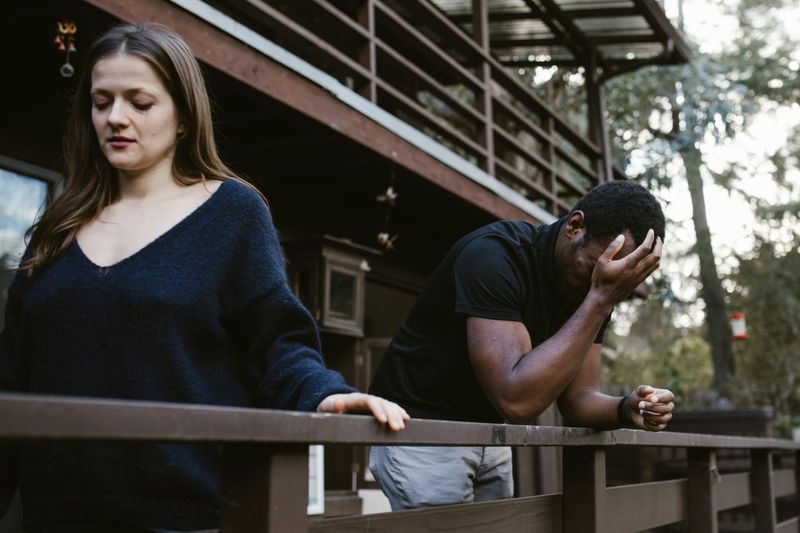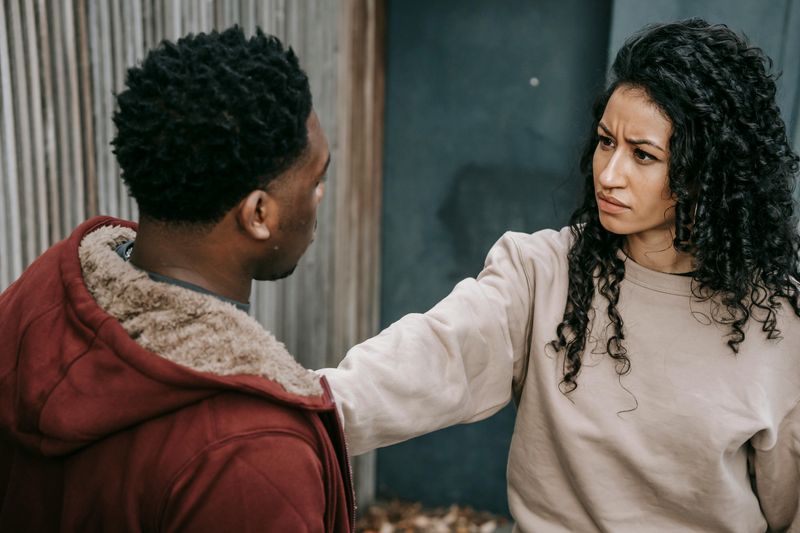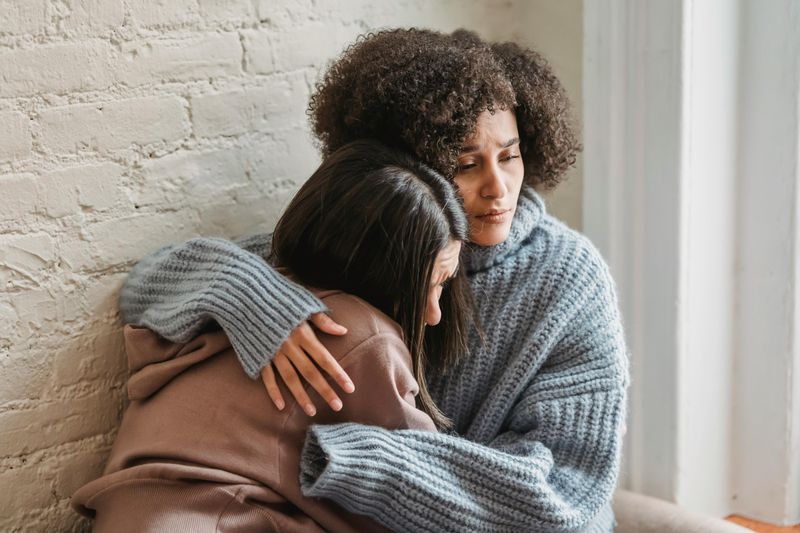When to Stay, When to Walk Away: Making the Hardest Love Decision

Choosing between staying in a relationship or walking away is one of the toughest decisions you’ll ever face. Your heart and mind might be pulling you in opposite directions, making it hard to see clearly. Understanding the signs that point toward staying or leaving can help you make a choice that honors your happiness and well-being.
1. Recognizing Healthy Communication Patterns

Good communication acts like oxygen for relationships. When you and your partner can talk openly about feelings, solve problems together, and really listen to each other, that’s a green light worth paying attention to. Dr. John Gottman’s research shows that couples who communicate effectively have stronger, longer-lasting bonds.
Pay attention to how disagreements unfold in your relationship. Can you express concerns without fear of being dismissed or attacked? Healthy partners make space for difficult conversations and work through them with patience. When both people feel heard and understood, even tough times become opportunities to grow closer rather than reasons to drift apart.
2. Spotting the Red Flags of Abuse

Abuse isn’t always visible bruises—it can hide in words, control, and emotional manipulation. Physical violence, constant criticism, isolation from friends and family, or making you question your own reality are serious warning signs. No amount of good times can justify staying in an unsafe situation.
Your safety and mental health must come first, always. If your partner’s behavior makes you feel scared, worthless, or trapped, these feelings are valid signals that something is deeply wrong. Reaching out to trusted friends, family, or professionals like counselors can provide the support and guidance needed to leave safely and rebuild your life.
3. Evaluating Mutual Respect and Empathy

Respect forms the foundation that holds relationships together through storms and sunny days alike. When your partner values your opinions, celebrates your achievements, and treats you as an equal, you’ve found something precious. Empathy means they try to understand your perspective, even when they disagree.
Notice how your partner responds when you’re struggling or excited about something. Do they dismiss your feelings or genuinely care about what matters to you? Relationships thrive when both people feel their emotions are valid and important. Without mutual respect, love becomes one-sided and exhausting, leaving you feeling empty rather than fulfilled and cherished.
4. Understanding Persistent Dishonesty

Trust is like a delicate vase—once shattered, the cracks remain even after careful repair. Everyone makes mistakes, but repeated lies create a pattern that erodes the foundation of any partnership. When dishonesty becomes routine, you’re left constantly questioning what’s real and what’s fabricated.
Small lies can snowball into bigger betrayals over time. If your partner repeatedly hides things, makes excuses, or gets caught in contradictions, these behaviors signal deeper issues. Rebuilding trust requires genuine remorse, transparency, and consistent changed behavior. Without these elements, you’re stuck in a cycle of doubt and disappointment that damages your emotional well-being and self-worth.
5. Sharing a Vision for the Future

Imagine building a house where one person wants a cottage and the other wants a skyscraper—that’s what mismatched goals feel like in relationships. Couples who share similar dreams about careers, family, lifestyle, and values navigate life’s journey more smoothly. Alignment doesn’t mean being identical; it means your paths complement rather than clash.
Have honest conversations about where you both see yourselves in five or ten years. Do your answers create excitement or anxiety? Partners who view their relationship as a team effort, working toward compatible goals, experience greater satisfaction. When your visions diverge completely with no room for compromise, you might be heading in different directions.
6. Identifying Lack of Effort

Relationships are like gardens—they need regular watering, sunlight, and care to flourish. When one person does all the work while the other coasts along, resentment grows like weeds. Effort shows up in small gestures: planning dates, asking about your day, apologizing sincerely, and making time despite busy schedules.
Notice whether your partner actively contributes to solving problems or just acknowledges them and moves on. Real partnership means both people invest energy into keeping the relationship healthy and vibrant. If repeated conversations about issues lead nowhere and your partner refuses to change or try, you’re essentially watering a plastic plant—no amount of effort will make it grow.
7. Navigating Irreconcilable Value Differences

Core values are the compass that guides our life choices, from how we spend money to how we raise children. Sometimes couples discover fundamental beliefs that clash so deeply that compromise feels impossible. Perhaps one person values adventure while the other craves stability, or religious beliefs create insurmountable divides.
Minor differences add spice to relationships, but major value conflicts create constant friction and unhappiness. Can you respect each other’s beliefs while honoring your own? If every significant decision turns into a battle because your core principles oppose each other, the relationship might require sacrifices that leave one or both people feeling resentful and unfulfilled over time.
8. Embracing a Growth Mindset Together

Conflicts aren’t relationship killers—they’re actually opportunities to understand each other better and strengthen your bond. Couples with growth mindsets view challenges as chances to learn rather than reasons to give up. This perspective transforms arguments from destructive battles into constructive conversations that bring you closer.
How do you both handle disagreements? Partners who approach problems as teammates rather than opponents create resilient relationships. They’re curious about why conflicts happen and willing to adapt and compromise. When both people believe the relationship can improve and are willing to put in the work, even difficult periods become stepping stones toward a deeper, more mature connection.
9. Dealing with Mixed Feelings and Ambivalence

Feeling torn between staying and leaving is completely normal and doesn’t mean something’s wrong with you. Research shows most people experience simultaneous pushes and pulls when considering ending a relationship. One day you remember all the good times; the next day, the problems feel overwhelming and impossible to ignore.
These mixed emotions make decision-making incredibly difficult and confusing. Give yourself permission to feel uncertain without rushing to conclusions. Write down your thoughts, notice patterns in your feelings, and pay attention to whether the balance tips more toward happiness or unhappiness over time. Ambivalence is your mind’s way of carefully weighing a significant life choice.
10. Seeking Professional Guidance

Sometimes we’re too close to our own situation to see it clearly, like trying to read a book pressed against your nose. Professional counselors and therapists provide a neutral, judgment-free space to explore your feelings and options. They’ve helped countless people navigate similar crossroads and can offer tools and perspectives you might not have considered.
Couples counseling works when both partners are willing to participate honestly and make changes. Individual therapy helps you understand your own needs, patterns, and boundaries more clearly. There’s no shame in asking for help—it actually shows strength and wisdom to recognize when you need outside perspective on such an important decision.
11. Utilizing Your Support System

Friends and family who know you well can offer valuable insights and emotional support during difficult relationship decisions. They’ve witnessed your journey and can sometimes spot patterns you’ve missed. Talking through your feelings with trusted people helps organize confused thoughts and provides comfort when you’re struggling.
However, remember that every relationship is unique, and what worked for someone else might not apply to your situation. Take advice as perspective rather than gospel truth. Some well-meaning people might project their own experiences onto yours. Ultimately, you’re the expert on your own relationship and feelings, so gather input but trust your own judgment when making the final decision.
12. Prioritizing Your Well-Being and Happiness

Your emotional health and long-term happiness deserve to be at the center of this decision. Staying in a relationship that consistently drains you, makes you doubt yourself, or prevents your growth isn’t love—it’s self-sacrifice that ultimately helps no one. You deserve a partnership that adds to your life rather than subtracts from it.
Check in with yourself regularly about how the relationship makes you feel overall. Do you feel energized, supported, and valued, or exhausted, anxious, and small? Your feelings matter and provide important information about whether this relationship serves your highest good. Making choices aligned with your core values and well-being leads to a more authentic, fulfilling life.

Comments
Loading…